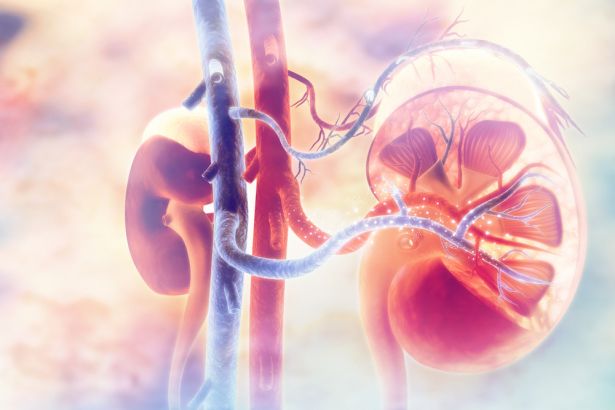
What is being tested?
The glomerular filtration rate (GFR) is a measure of the function of your kidneys. Glomeruli are tiny filters in your kidney that allow waste products to be removed from the blood, while preventing loss of important proteins and blood cells. The rate refers to the amount of blood that is filtered per minute.
How is it used?
eGFR is very accurate and convenient way to detect changes in kidney function. If kidney damage is detected early, it may be possible to prevent further damage by treatment of high blood pressure, diabetes, or other diseases that can damage the kidney. Your doctor may also need to know your eGFR before prescribing certain medications, because you may need a lower dose than usual if you have kidney damage. eGFR is based on serum creatinine, an easily performed and commonly measured laboratory test.
When is it requested?
eGFR is routinely offered by the majority of Australian laboratories. It has been introduced to improve the detection of early kidney damage so that measures can be taken to stop, or at least slow progression to more severe kidney damage. eGFR is suitable for most patients who are 18 years or older, not pregnant or malnourished and do not have acute kidney damage. Doctors and laboratories are now using eGFR to look for the presence of kidney damage in various 'at risk groups' including people with: diabetes, blood vessel disease, heart problems, high blood pressure, obstructions to urine flow, and in patients taking some commonly prescribed drugs including diuretics (water tablets) and a variety of drugs used to treat high blood pressure.
What does the result mean?
eGFR is a simple test to detect early changes in kidney function. A normal result means that kidney disease is less likely while a low value indicates that some kidney damage has occurred. Most severe kidney damage leads to progressively lower eGFR values. Sometimes, in very early kidney damage (especially when the kidneys are damaged by diabetes), other tests such as protein urine or microalbumin may show kidney damage before any change in the eGFR.
Is there anything else I should know?
A recent meal of cooked meat can increase the measurement of serum creatinine and falsely lower the eGFR.
As creatinine levels are influenced by muscle mass eGFR may be an unreliable indicator of kidney function in those with muscle mass that varies greatly from the average adult, e.g. the frail and elderly or bodybuilders.
Common questions
If you have had a recent creatinine measurement, you can calculate the eGFR by using the calculator on the Kidney Health Australia web site. If you have questions about the interpretation of your results, it is best to consult with your health care provider.
The best method for directly determining the GFR is a procedure called an "inulin clearance." It involves introducing a fluid containing the marker molecule inulin (NOT insulin) into your veins (IV – intravenous infusion) and then collecting timed urines over a period of hours. The urine volumes are noted and the inulin in each sample is measured to allow determination of the GFR. This test and other methods of determining GFR, such as those that use radioactive markers, are not routinely ordered and are primarily performed in research settings.
Yes, eGFR calculation and reporting has been adopted by all Australian laboratories.
Besides for periodic monitoring, the eGFR might be repeated if your health care provider feels that a temporary condition may be affecting your results.
Diabetics and others at risk for developing kidney disease may be monitored for small amounts of albumin in their urine by performing an albumin/creatinine ratio test. The presence of albumin and other plasma proteins as well as blood in the urine can all be signs of potential kidney damage.
More information
Pathology Tests Explained (PTEx) is a not-for profit group managed by a consortium of Australasian medical and scientific organisations.
With up-to-date, evidence-based information about pathology tests it is a leading trusted sources for consumers.
Information is prepared and reviewed by practising pathologists and scientists and is entirely free of any commercial influence.